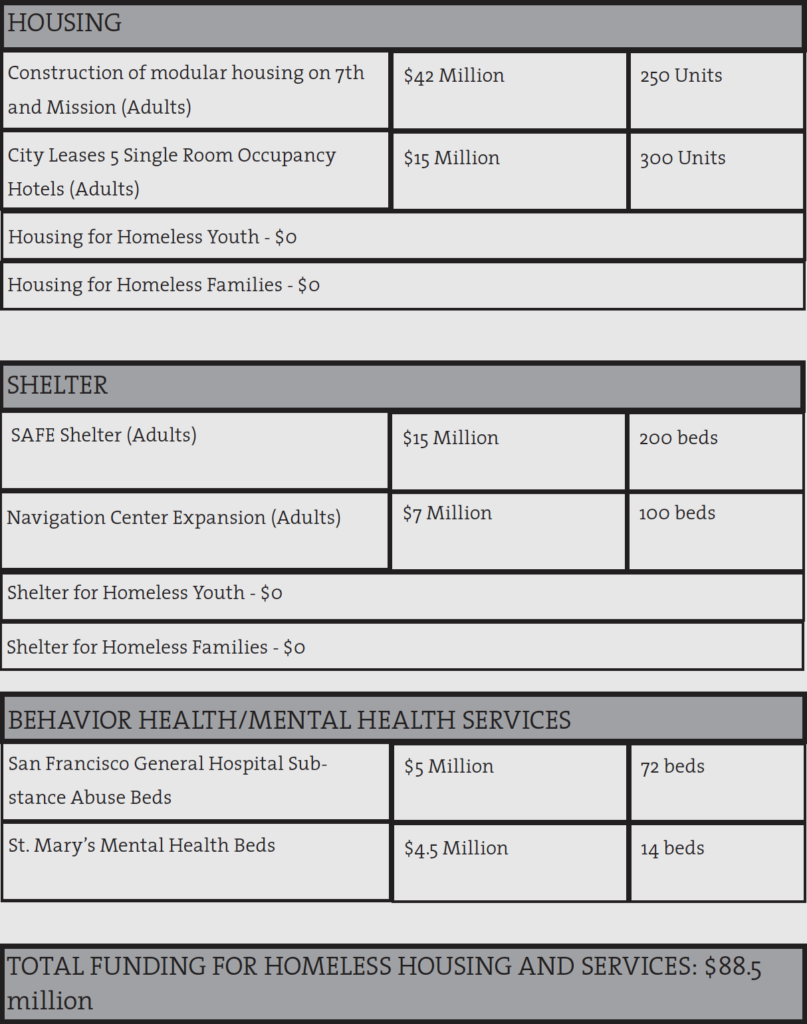On Tuesday, the Board of Supervisors unanimously voted to approve a spending deal that will fund upwards of $200 million for salary raises for public school teachers and childcare providers as well as affordable housing and homeless services.
The funds originate from the Educational Revenue Augmentation Fund (ERAF). Established in 1992 by the state of California, the fund essentially takes away money from counties in the form of property taxes to be used for school districts, while simultaneously taking away the same amount in state funding. However, once the revenue from taxes reaches a certain cap, the excess money is returned to counties. And, for San Francisco, this could be the case for the foreseeable future to the tune of around $200 million per year, barring any changes in state law.
With such a large and unexpected amount of money, community groups scrambled for a piece of the pie. Most notable were three groups who all passed voter initiatives last year that are now all tied up in court: Props C and G in June, which raised salaries for childcare providers and teachers, and November’s Prop C, which raised funds for homeless housing and services. Mayor London Breed also introduced her own budget proposal, which allocated all of the funding for affordable housing and homeless services.
The budget proposal that has passed — and was co-sponsored by all 11 supervisors — includes $88.5 million for homelessness housing and service. The money will be spent on 300 shelter beds, 550 housing units and 86 beds for those with acute behavioral health needs.
The Our City Our Home Coalition, a group of advocates, frontline service providers, and people with lived experience of homelessness which were the proponent of November’s Prop C, voiced concerns over the allocation of homelessness funding. Namely, that there was a stark absence of funding for homeless families and youth, two populations that have been historically underfunded, but represent the majority of the homeless population.
Indeed, all funding for shelter and housing will be going towards the homeless adult population, targeted specifically at the chronically homeless population, a move that elected officials have been keen on supporting to reduce street homelessness, rather than addressing the issue equitably.
The other concern? An allocation of $4.5 million for mental health beds at St. Mary’s. The hospital beds would be located in a locked facility (meaning that patients would not be able to exit services by their own will) and cost upwards of $142,000 per bed per year — an incredibly ineffective way to use limited resources. Studies have shown that locked facilities do not improve mental health outcomes more than voluntary mental health services. Advocates instead maintained that there should be an investment in community mental health care.
The City will be receiving an estimated additional $200 million in June. Hopefully, this time Supervisors will put their money where their mouth is — and remember the homeless families and youth in the budget process.


